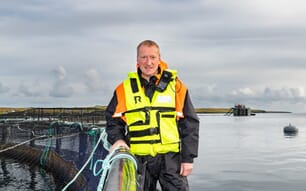Today the aquaculture sector - fish and shellfish farming - produces 60 per cent of fishing stocks globally yet the EU contributes only 2.3 per cent to this growing industry. Through an opinion presented by Marialuisa Coppola (IT/EPP) at the EU's Committee of the Regions' (CoR) plenary, local and regional authorities recognised the urgency to find a solution to reduce import dependency.
With ever increasing demands in the EU for fish and seafood, the Committee welcomes European Commission plans to introduce measures to balance environmental protection and the development of a sustainable fishing market. Investing in the right technology and concentrating efforts on creating a sustainable aquaculture sector, the Committee argued, will inspire a “Blue Revolution”.
Ms Coppola (IT/EPP), Regional Councillor from the Veneto Region, said: "What is important is that the EU offers high-quality, healthy and affordable seafood products to meet demand whilst protecting overfished species. We must therefore remain competitive on the global market by simplifying the administrative hurdles when establishing new aquaculture and fish farms".
The EU must cut red-tape with the CoR noting the significant differences in applying for aquaculture farms licenses which can take anywhere from six months to three years. Ms Coppola also stressed, "90 per cent of this sector is in hands of SMEs and family-run firms so we must ensure we provide the right support whilst simplifying administrative procedures. Aquaculture is a shock absorber and, especially for the outermost regions, this sector has been a major advantage during times of crisis. Aquaculture holds great potential for the economy of Europe's regions and cities. But this potential cannot be reached without the involvement of local and regional authorities, who are best placed to promote the sustainable development of aquaculture and general knowledge amongst citizens".
The Committee also adopted an opinion on State Aid for Fisheries and Aquaculture arguing that EU reform expected next year must complement efforts to create a sustainable fisheries sector. To ensure a fair and competitive market, under current EU rules public authorities are prohibited from offering subsidies to businesses except in cases where the amount is lower than €30,000 over three years ("de minimis" aid) or whereby financial support is not considered to distort competition in Europe.
With regulations expected to lapse at the end of 2013, Europe’s cities and regions argued that any change must promote sustainable practises - including small scale fishing fleets – and direct funds to onshore activities to ensure the protection of fishing communities.
Rhodri Glyn Thomas (UK/EA), Member of the National Assembly for Wales, who led the opinion, said: "It is fundamental that any reform of State Aid regulations for fisheries and aquaculture be undertaken with sustainability, structural changes and diversification within the fisheries sector as its underlying principles, thereby supporting small fishing communities. On the one hand, pressures on rural and fishing communities across the EU are particularly acute in the context of the on-going socio-economic crisis, and targeted support at the territorial level is critically important for the socio-economic future of such communities.
"On the other hand, we have witnessed a demise of sustainable fishing activities due to reasons such as the overcapacity of the fishing fleet and, consequently, heavy overfishing by large industries. A more sustainable use of public subsidies in the fisheries sector, which will take into account sustainability of both fish stocks and fishing communities in Europe, requires strong political will and action at all levels of governance within the EU. I strongly hope that 2014-2020 will be the period through which we will drive forward real change."


